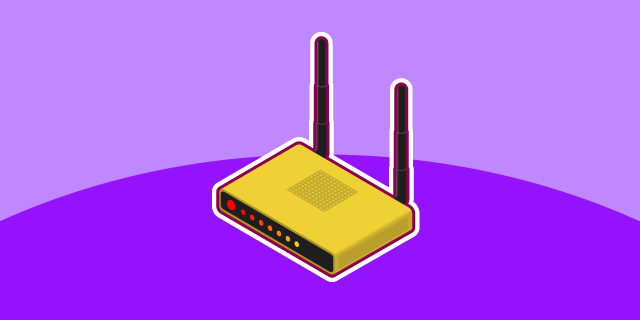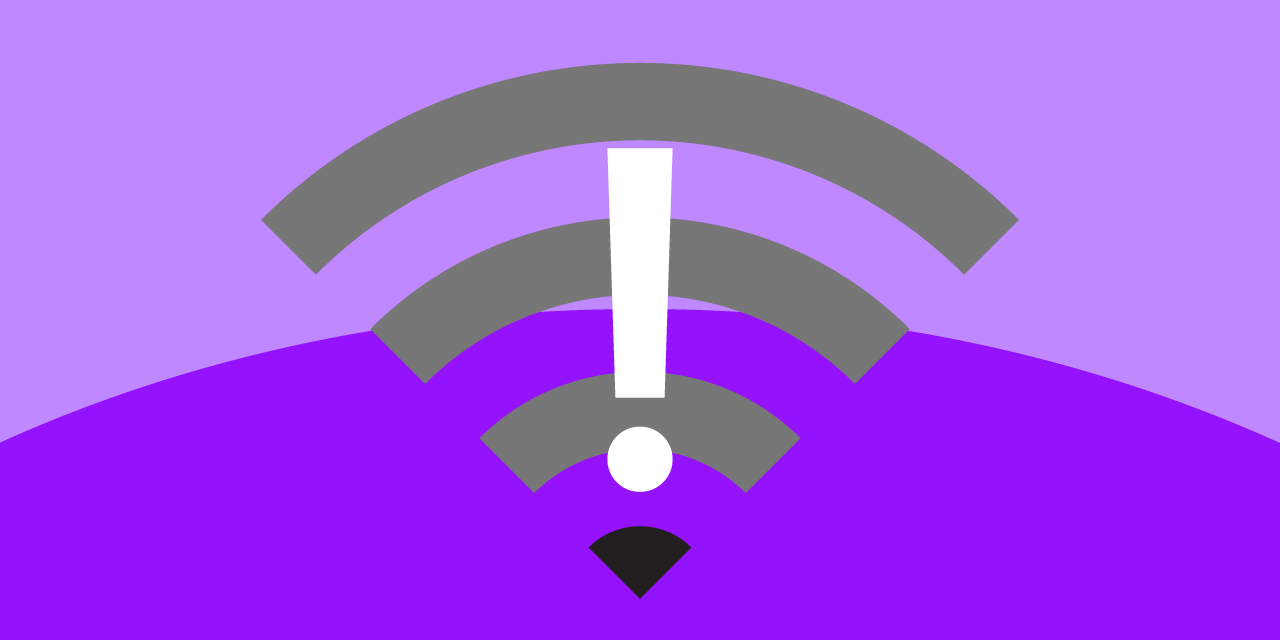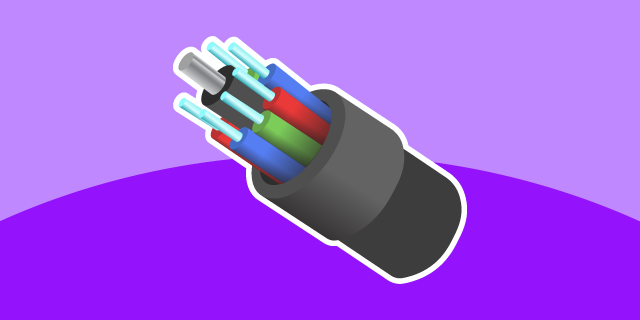10 Reasons to Switch Broadband Providers in 2024
Reading Time: 7 minutes
Remember the the dial-up days when downloading a single song was an all-day affair? Fast forward to now, and despite our high-tech advancements, we’re still plagued by sluggish speeds, frozen Zoom calls, and disappearing data. The culprit? Overpriced, underperforming broadband packages that leave your Netflix buffering at the worst moments. It’s time to ditch this […]

Remember the the dial-up days when downloading a single song was an all-day affair? Fast forward to now, and despite our high-tech advancements, we're still plagued by sluggish speeds, frozen Zoom calls, and disappearing data. The culprit? Overpriced, underperforming broadband packages that leave your Netflix buffering at the worst moments. It's time to ditch this digital disaster and switch to a broadband service that can actually keep pace with your online life.
Not sure what's held you back from upgrading to a better broadband package, but fear not—switching providers doesn't have to be a hassle. Stick with us, and you'll be surfing smoothly in no time. With our intelligent pairing tool, finding a provider that meets your needs is a breeze, and you can finally say goodbye to your current slow connection.
In this article, we'll dive into the top reasons why customers decide to switch internet providers, why now is the perfect time to make the switch, and guide you through the process. We'll also help you find the best internet deals to suit your needs.
Your sign to switch broadband now
Let's dive into the top 10 reasons to switch broadband and see how many of these you can relate to. Put a finger down each time you find yourself nodding along with the list below.
- Slow internet speed
- Poor reliability
- High prices
- Poor customer service
- Limited bandwidth
- Limited data usage
- Low to no perks
- Poor coverage
- Unreasonable contract terms
- Outdated technologies
1. Slow internet speed
This is probably the number one pain point for users all across Europe (except Monaco and Romania, where the internet is light-years ahead). But why is this such a widespread issue? Let's break down the most common factors that can contribute to slow internet speeds:
- Bandwidth limitations: The amount of bandwidth available to you can impact your internet speed. If you are sharing a network with other users or devices and they are using up a lot of bandwidth, your internet can slow down.
- Network congestion: Heavy internet traffic, especially during peak usage hours, can cause network congestion. This means that the data you are trying to access or download competes with other user's data for the same limited network resources, resulting in slower speeds.
- Distance from the router: The further you are from your Wi-Fi router, the weaker the signal strength will be. This can lead to slower internet speeds or even dropouts.
- Interference: Interference from other devices, such as microwaves or cordless phones, can interfere with your Wi-Fi signal and cause slower internet speeds.
- Outdated hardware: If your modem, router, or computer is outdated, this can contribute to slower internet speeds. Upgrading your hardware can help improve your internet speeds.
- Internet Service Provider (ISP) issues: If your ISP is experiencing technical issues or is having network problems, this can cause slower internet speeds for all users on the network.

2. Poor reliability
Frequent outages or slow connection speeds can be a sign of poor reliability. It may be time to switch broadband provider if you can't rely on your internet connection. But first, let's explore the reasons behind your current internet provider's poor reliability so you can avoid this scenario in the future:
- Your current internet provider has network issues - hardware failures, software bugs, or configuration errors can cause these issues.
- Your current internet provider experiences frequent fibre optic cable damage - the internet relies on a complex network of fibre optic cables to transmit data worldwide. These cables can be damaged by construction work, weather events, or other factors, leading to internet outages.
- Your current internet provider experiences frequent power outages - the internet also relies on a reliable electricity supply to power its infrastructure. If there is a power outage, the equipment that powers the internet may be affected, leading to an outage.
- Cyberattacks! Malicious actors can launch cyberattacks, such as Distributed Denial of Service (DDoS) attacks, which overwhelm websites or servers with traffic, causing them to crash or become unavailable.
- Human error - mistakes made by network engineers, such as misconfigurations or accidental cable cuts, can also cause internet outages.
- Internet congestion - during periods of high demand, such as when a large event occurs or during peak hours, the internet can become congested and slow down or become unavailable in some areas.
3. High prices
If we learnt anything from our experience as a price comparison platform, there is always a better deal for broadband.
Not all broadband deals are expensive, and prices can vary depending on a range of factors, such as location, provider, and the specific package you choose. Shopping around and comparing deals from different providers can help you find a more affordable option.
4. Poor customer service
This one's downright embarrassing that still happens, but chances are you felt it on your own skin. Regardless if it happened only once or it's a common occurrence, it's time to move on.
Poor customer service can be frustrating, time-consuming, and unhelpful, leaving customers feeling angry and ignored. And it doesn't end there, unfortunately.
A good example of poor customer service is also the long wait times for installation or repairs: when customers sign up for a new broadband service or need repairs, they may need to wait several days or weeks for an appointment. This can be inconvenient, especially if you work from home or rely on the internet for other important tasks.
5. Limited bandwidth
If you frequently use the internet for streaming, gaming, or other data-heavy activities, you may need a provider that offers higher bandwidth. See the internet speed table from number 1 for your reference.
6. Limited data-usage
This one's a no-brainer: if your current provider imposes limits on the amount of data you can use each month, you may want to switch to a provider that offers unlimited data.
7. Low to no perks
Some providers offer additional benefits such as free access to streaming services, free routers or other perks that may be more valuable to you than your current provider's offerings. Here are the most common perks you get when switch broadband provider:
- Discounts or promotional offers ➡ Check latest internet offers here
- Cashback or gift cards ➡ Check latest internet cashback here
- Faster internet speeds ➡ Check latest internet deals here
- Freebies or extras ➡ Check latest internet freebies here
- Loyalty programs ➡ Check latest internet loyalty programs here
8. Poor coverage
If your current provider doesn't offer coverage in your area, or if coverage is poor, you may be able to find a better provider with better coverage in your area.
9. Unreasonable contract terms
If you're unhappy with the terms of your current broadband contract, such as long contract lengths or hidden fees, you may want to switch to a provider that offers better contract terms.
10. Outdated technologies
If your provider doesn't offer the latest technology, such as fibre-optic broadband, you may miss out on faster speeds and more reliable service.

Why switch now?
Are you tired of slow internet speeds, constant buffering, and dropped connections? Are you fed up with your broadband provider's poor customer service and hidden fees? It's time to switch broadband provider!
A new provider can offer faster speeds, more reliable connections, and better customer service to help you avoid those common pain points that you've been experiencing.
Moreover, switching providers can also save you money. Many providers offer promotions and discounts for new customers, allowing you to save on your monthly bill. This means you can get better service while paying less than you currently pay.
How to switch broadband provider
- Check your current contract to see if you are still under a fixed-term agreement. If you are, you may need to pay an early termination fee if you switch before the contract ends.
- Compare broadband deals for the features that are important to you, such as internet speeds, data allowances, prices, perks, etc.
- Contact your new provider to sign up and set an installation date. Alternatively, you can use a switching platform like SWICC to do it for you.
- Contact your old provider and inform them you want to cancel your service. They may try to persuade you to stay, so be prepared to negotiate or stick to your decision.
- Return any equipment, such as routers and modems.
- Check your final bill to ensure you have not been charged for any services after switching to your new provider.
Or skip some of the steps & let us do it for you...
We can help you switch broadband provider in a matter of a few clicks with a step-by-step guided service, or better yet, just leave it with us. All you have to do is fill out the form below, and one of our knowledgeable operators will contact you with the next steps. Hassle-free and absolutely free!



